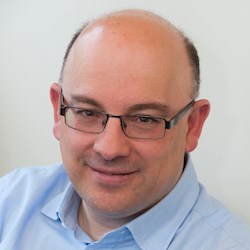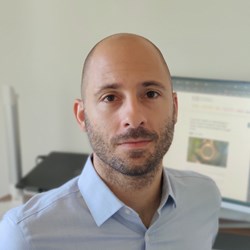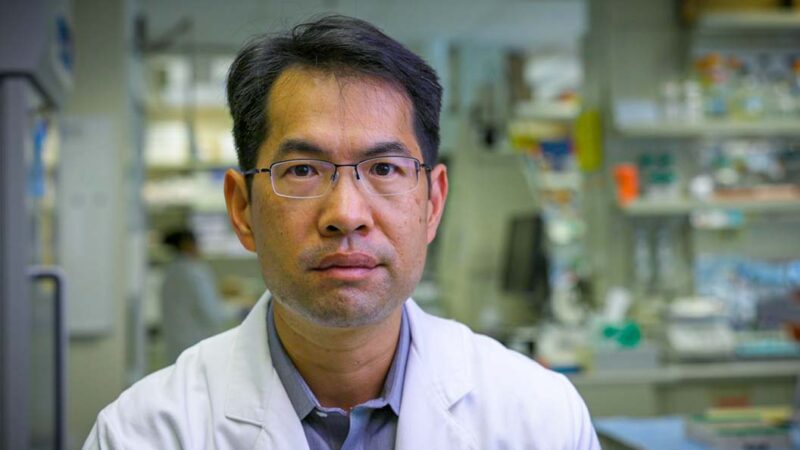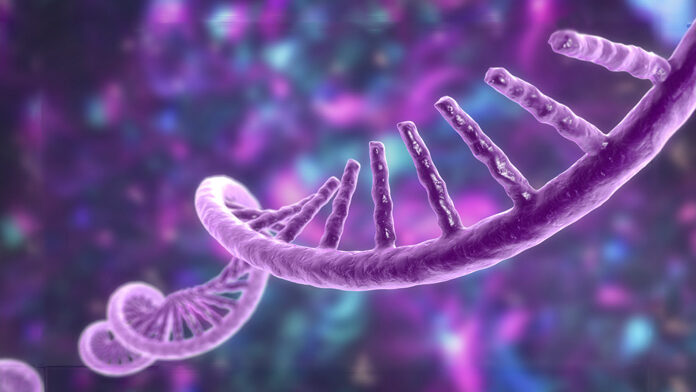Messenger RNA (mRNA) is a crucial intermediary molecule in the process of protein synthesis within cells. It serves as a “go-between” by copying genetic information from DNA in the nucleus and then transporting it to the cytoplasm, where ribosomes, the cell’s protein factories, use this information to assemble proteins. The ribosomes read the genetic sequences in the mRNA and translate them into amino acid sequences, which are then linked together to form functional proteins. These proteins carry out most of the essential tasks in the cell, such as maintaining structure, facilitating reactions, and regulating gene expression.
In cancer research, particularly in the study of prostate and bladder cancers, mRNA translation has emerged as a significant area of focus. Dr. Andrew C. Hsieh, a prominent researcher in this field, is investigating how the mRNA translation process contributes to cancer growth, particularly in tumors that have bypassed the usual mechanisms of growth, such as androgen receptors (AR). In prostate cancer, when the androgen supply is cut off (which usually stimulates cancer growth), tumors often rely on the mRNA translation process as an alternative pathway to continue growing. This adaptation makes tumors highly dependent on mRNA translation for survival and expansion.

Hsieh’s research aims to understand how this “backup” pathway works and how it can be targeted to stop cancer growth. He has discovered that tumors surviving without androgen dependence rely on a complex of molecules that regulate the initiation of mRNA translation. This newly identified weak link in tumor cells presents a potential therapeutic target. By disrupting this mRNA translation process, researchers hope to develop drugs that can inhibit tumor growth in cancers that have evolved to survive without their primary growth signals, offering a new approach to treatment.
The Researchers of the Project.
Adam Sharp
Dr. Adam Sharp, a physician-scientist who leads the Translational Therapeutics Team at the Institute of Cancer Research (ICR), accepted the two-year Prostate Cancer Foundation (PCF) Challenge Award at the foundation’s annual scientific retreat in Carlsbad, California, last weekend. This prestigious award will support his team’s research focused on advancing the understanding of prostate cancer and developing new therapeutic strategies.

Johann de Bono
Professor Johann de Bono is the Head of the Division of Clinical Studies at the Institute of Cancer Research (ICR) and is an internationally recognized expert in the development of novel anticancer therapies for adult cancers. He leads one of the world’s largest phase I clinical trial units for cancer, with a team of over 100 staff, including specialized radiology and pathology experts. Professor de Bono also heads a separate research group focused on improving prostate cancer care. His work has been instrumental in leading pivotal phase III trials for several prostate cancer drugs, such as abiraterone, cabazitaxel, enzalutamide, olaparib, as well as more recent treatments like ipatasertib and lutetium-PSMA. His contributions have significantly advanced the treatment options available for prostate cancer patients.

Marco Bezzi
Dr. Marco Bezzi is the leader of the Tumour Functional Heterogeneity Group at the Institute of Cancer Research (ICR). His team utilizes cutting-edge technologies, including genome editing, mouse models, organoid cultures, and mass cytometry-based single-cell approaches, to experimentally model the cancer ecosystem. Their research focuses on understanding how tumor heterogeneity—variations within and between cancer cells—can be controlled and exploited in the context of evolutionary principles. By investigating the complexities of cancer evolution, Dr. Bezzi’s group aims to uncover new insights into how tumors evolve and how this knowledge can be used to develop more effective and targeted therapies.

Andrew C. Hsieh
Andrew C. Hsieh is a Physician at Fred Hutchinson Cancer Research Center and serves as a Professor and Associate Director of the Human Biology Division at Fred Hutch. He is also a Professor in the Clinical Research Division at Fred Hutch and holds the position of Associate Professor in the Division of Hematology and Oncology at the University of Washington School of Medicine.







